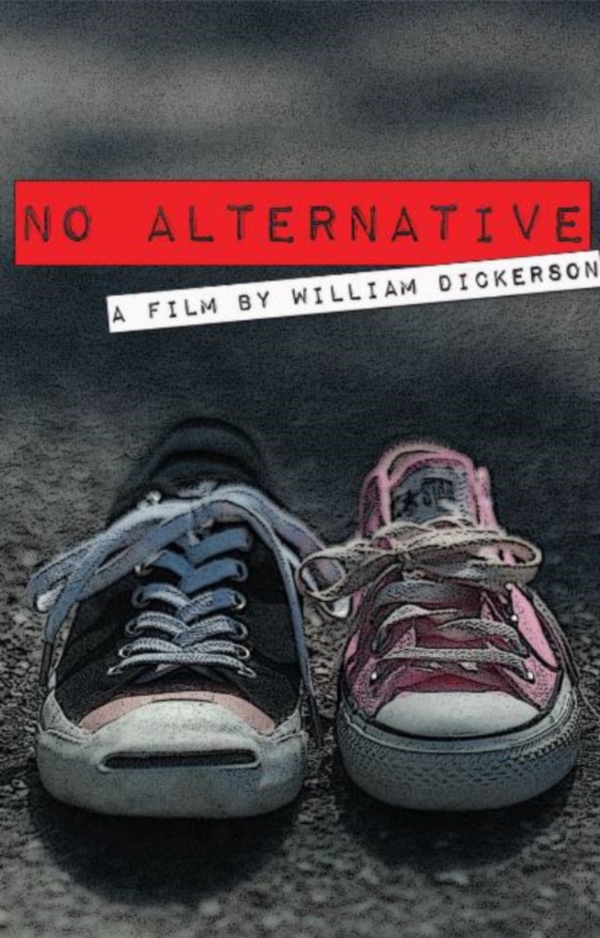Festivals - PAMA 2018 : William Dickerson’s No Alternative movie interview
By Mulder, Los Angeles, 19 june 2018
Q : Hello William, what can you tell us about your background and how you became a director?
William Dickerson : I studied filmmaking at The American Film Institute in Los Angeles, California, and have been directing feature films since. I’ve always felt drawn to the visual language of cinema, ever since I was young. My grandfather gave me his camcorder when I was 10 years old and I shot everything I could possibly shoot with it. It has been my passion for nearly my entire life.
Q : What can you tell us about your collaboration with Dwight Moody on the “No Alternative” screenplay?
William Dickerson : This film is inspired by real people in my life—namely, my sister, Briana, who suffered from borderline personality disorder. The character of Bridget “Bri Da B” Harrison is based on her. I generated the seed of the story, and Dwight and I wrote the screenplay together. We have written every screenplay together for the past 20 years. I felt I had more to write about this particular story, so I expanded it into a novel that was published in 2012.
Q : What are your feelings about the 90’s in America?
William Dickerson : The 90’s in America really formed me as a human being. The reason I picked up an instrument was because Kurt Cobain killed himself. There was a part of me that felt I could keep his music alive by learning it and playing it—from there, I formed a band, which the band in “No Alternative” is based on. We even use my band’s music in the film. There was a zeitgeist in the air in the 90’s. Every teenager felt alone, and felt alienated, but they were all connected through the music. The music of that era spoke to that loneliness. I really believe there has not been as important a pop-cultural movement since the early 1990’s.
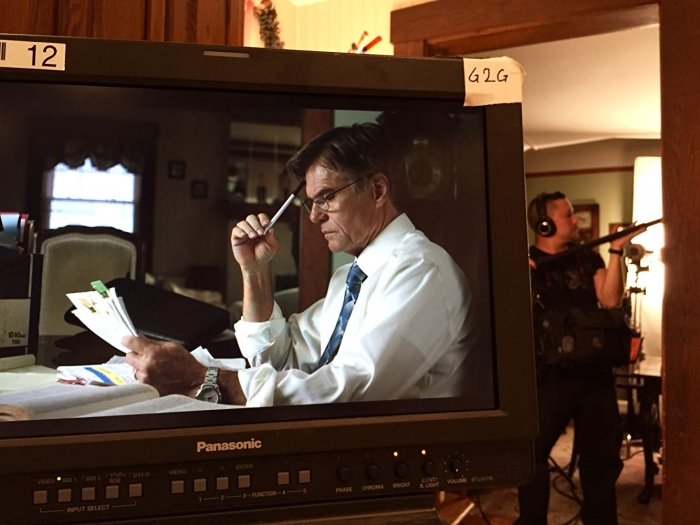
Q : Is it difficult to adapt your own novel to the big screen and what are the main differences between the book and this movie?
William Dickerson : It is difficult in the sense that I had to condense a lot of what I loved in the book. I had to pick and choose between scenes that I never wanted to pick and choose between. However, it was also easier to write because I knew the story so well. It was also easier to direct: I gave the actors copies of the novel, which they read, and which allowed them to dive deeper into the backstories of the characters. They appreciated having that reservoir of information available to them, and they understood the characters and scope of the story better because of it.
Q : What can you tell us about your cast: Michaela Cavazos, Conor Proft, Chloe Levine, Kathryn Erbe and Harry Hamlin?
William Dickerson : I am extremely lucky to have had the cast that I had for this film. This is both Michaela and Conor’s first big movie, and they were wonderful in the roles. I worked with a lot of young actors in this movie, and there is something so invigorating about doing so. There is this raw talent and passion that they have access to and it was my job to nurture it out of them, to make them feel safe enough to be able to access the darkest of their emotions. They were complete professionals. Kathryn and Harry are seasoned veterans, and so incredibly easy to work with. They both loved the material and made my job a delight.
Q : What can you tell us about the influence of Kurt Cobain’s death on you?
William Dickerson ; As I mentioned, Kurt is the reason I became a musician. He has become a mythological figure to me—and to many others—and his legacy weaves its way through my work.
Q : How big a part does music play in your life? Do you see yourself as a musician (you have a band), a director or a writer?
William Dickerson ; I am a drummer. I know a lot of directors who are drummers. I think there’s a reason for that: the beat. Movies have inherent rhythm to them: rhythm in the writing, rhythm in the shooting, rhythm in the acting, rhythm in the editing. It’s the job of the director to identify the emotional “beats” of the film and shoot those beats. The musician part of me definitely informs the filmmaker part of me. I see myself as all of them: musician, director and writer, as they are all pieces to the same artistic puzzle.
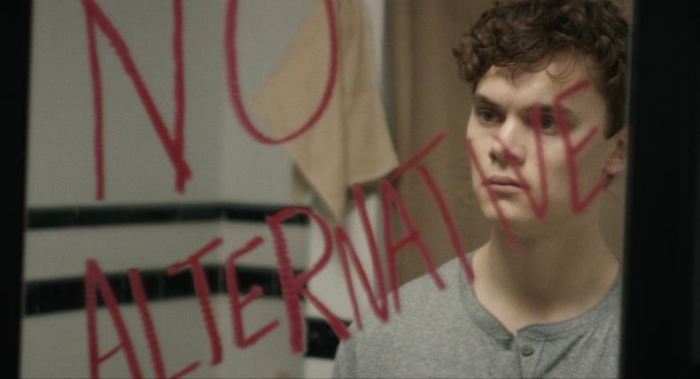
Q : Which of the films you have worked on do you consider to be the most important in your career, and why?
William Dickerson ; Without a doubt, “No Alternative” is the most important film of my career. It’s the film I’ve wanted to make for a least a decade, and it is the film that is the most personal. It is a tribute to my late sister, a way for her spirit to remain alive on screen. “Detour” was also important, since that was my first feature film and is what propelled me into becoming a working director.
Q : What can you tell us about your new book “The Dreamachine?”
William Dickerson ; “The Dreamachine” is my latest novel. It has some roots in Paris, France, as a matter a fact, as it is connected with the Beat Generation of the 1950’s, and some scenes take place at “The Beat Hotel.” It is a sci-fi thriller in which Jasper Keepnews becomes obsessed with a hypnotic device that allows him to see the last moments of a woman's life—moments he thinks are visions of the future. He attempts to find this woman to save her from her death, but in doing so, unlocks a portion of his memory that has been erased by a secret government agency. At some point, I would love to make this into a movie as well.
Q : While being a director, you have written for a lot of cinema magazines. Which do you remember most?
William Dickerson ; The article that resonated the most was a piece I wrote for Indiewire called “How Can Middle-Class Filmmakers Make A Living?” Hollywood studios are spending more money making less movies (blockbusters) and indie filmmakers are spending less money and making more movies (microbudgets)—there is no in between anymore. “Pulp Fiction” was a middle-class film, a movie made in the middle range. Studios and production companies are not funding those types of films anymore, and that is both stifling and thrilling. You can read the article here: http://www.indiewire.com/2015/10/how-can-middle-class-filmmakers-make-a-living-56191/
Q : “No Alternative” is your fourth movie. Are there any actors that you dream to work with and why?
William Dickerson ; I’ve always had a fondness for Kurt Russell and his work. Take a look at his work with John Carpenter, and you just don’t get any cooler. I would love to work with Kurt Russell.
Q : With which French actors would you like to work with, and why?
William Dickerson : I would love to work with Mathieu Amalric. His work in “The Diving Bell and The Butterfly” was inspiring. That film ranks among my favorite films of all time.
Q : What kind of advice could you give to someone who would like to work as a director?
William Dickerson : There is no ladder to becoming a director. A director directs. You must get behind the camera and generate as much material as possible.
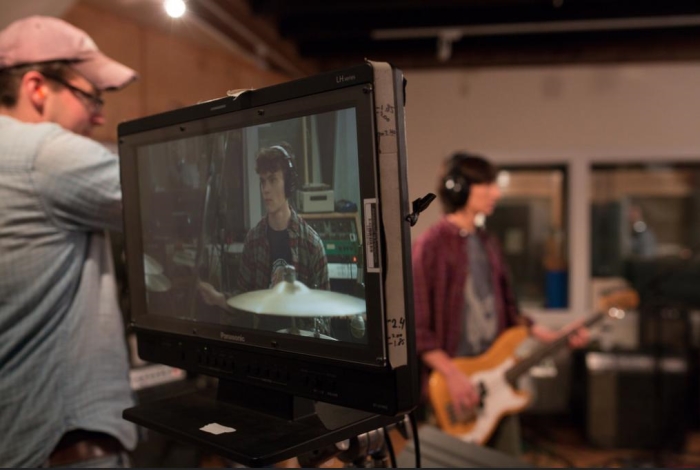
Q : Have you a little word to finish to say to your French audience?
William Dickerson ; I’m thrilled that “No Alternative” is nominated this year at the PAMA. It is a movie that, while set in America, strikes universal chord with teenagers around the world. In fact, anyone who was a teenager can relate. Paris is one of my favorite cities in the world and to be recognized here is a great honor. If you would like more information on “No Alternative,” please find us online here:
Facebook: https://www.facebook.com/noaltfilm/
Twitter: https://twitter.com/noaltfilm
Instagram: https://www.instagram.com/noaltfilm/
Website: http://williamdickersonfilmmaker.com
Synopsis:
This coming-of-age drama blasts open the world of grunge-era teenagers in the early 90s.
No Alternative
Directed and written by William Dickerson
Cast Michaela Cavazos, Conor Prof, Harry Hamlin, Kathryn Erbe, Chloe Levine, Matthew Van Oss, Eli Bridges Aria Shahghasemi
Produced by Blake Barrie, Shalaina Castle, Carrie LeGrand
Exececutive producer : Brud Fogarty, Brud Fogarty, Troy Gregory, Clifford Kirvan, James Andrew O'Connor
Cinematography by Mj Mynarski
Film Editing by Robert Kraetsch
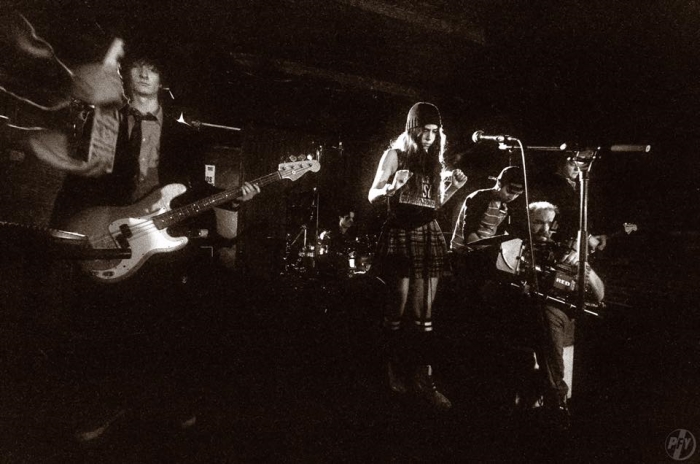
A big thank to William Dickerson to have taking the time to answer to our questions
Special thanks to Matt Beurois for helping us to have this interview
It”s not too late to buy your ticker for the Award ceremony in the Paris Le Grand Rex theater next Monday here
Paris Art and movie Awards
Site : http://parisartandmovieawards.com/
Billets: http://parisartandmovieawards.com/program/
Twitter : https://twitter.com/PAMAwards
Facebook : https://www.facebook.com/thepama


